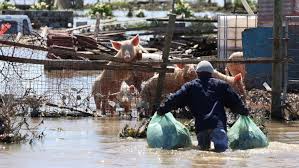To better assist member nations affected by natural disasters and other shocks in responding to a world that is becoming more and more prone to crises, the World Bank announced on Thursday that it has authorized new initiatives.
Up to 10% of the money left over from an existing project loan or other facility might be rapidly transferred to nations for disaster response, according to improvements made to the bank’s Crisis Preparedness and Response Toolkit.
Laptops 1000In the event of a storm, earthquake, or pandemic, a nation with $3 billion in undisbursed loans out of a $5 billion loan portfolio may quickly access $300 million, according to World Bank Managing Director for Operations Anna Bjerde. This liquidity burst might prevent significant hardship.
“We hear client after client, from very low-income to middle-income countries, say, ‘When a crisis hits, we’re unprepared financially and we have to make all kinds of terrible trade-offs that we don’t want to have to make.'”
In addition, the World Bank will expand access to greater pre-arranged emergency crisis finance as part of upcoming loan programs that call for institutional resilience-building measures such as disaster-preparedness reforms.
The World Bank executive board endorsed a third component that calls for a broad expansion of the use of catastrophe insurance products as a means of preventing major disasters. Among these are catastrophe bonds, which guarantee insurance payments in the case of hurricanes or other calamities exceeding predetermined levels.
Such bonds were first introduced in Jamaica, and Ajay Banga, President of the World Bank, has advocated for their growth to provide “peace of mind” to fragile countries by protecting their budgets from dangers posed by climate change and other issues.
According to Bjerde, this effort would allow funds from project loans that catastrophe bonds would insure to be utilized towards the fees associated with arranging their issue, which is currently covered by the governments issuing the bonds.
Laptops 1000QUICKER AND BETTER BANK
The modifications are part of the World Bank’s larger reform initiatives to greatly increase its lending capacity and broaden the development lender’s mission to address climate change and other global challenges.
Before requesting a general capital increase from shareholders, Banga is building a “better bank” as part of its operational reform efforts. “This is essentially us responding to what we’ve heard” from client countries, Bjerde said.
According to Bjerde, expediting the bank’s loan approval and distribution processes is another facet of the operational adjustments. The bank, which employs over 16,000 people, now needs an average of 27 months from the start of a project to the first loan disbursement, plus an additional 19 months for loan approval.
Even for the most complicated projects, such as massive hydroelectric dams, she hopes to cut the approval time to 12 months by the end of June 2025. She stated that the permission time will decrease by “a few months” by the end of the current fiscal year on June 30.
“And then I want to speed up the disbursements because if you’re not disbursing, you’re not implementing” the loans, Bjerde stated.


















